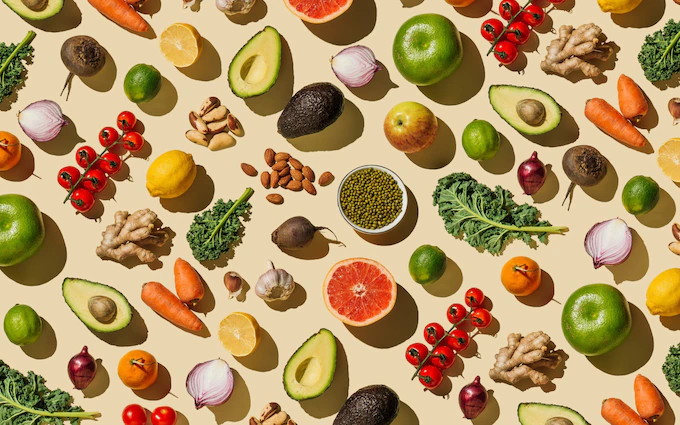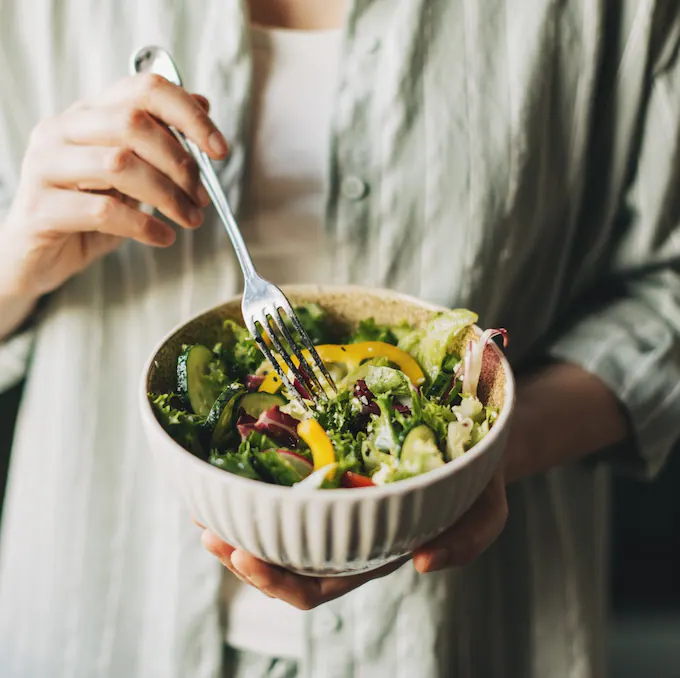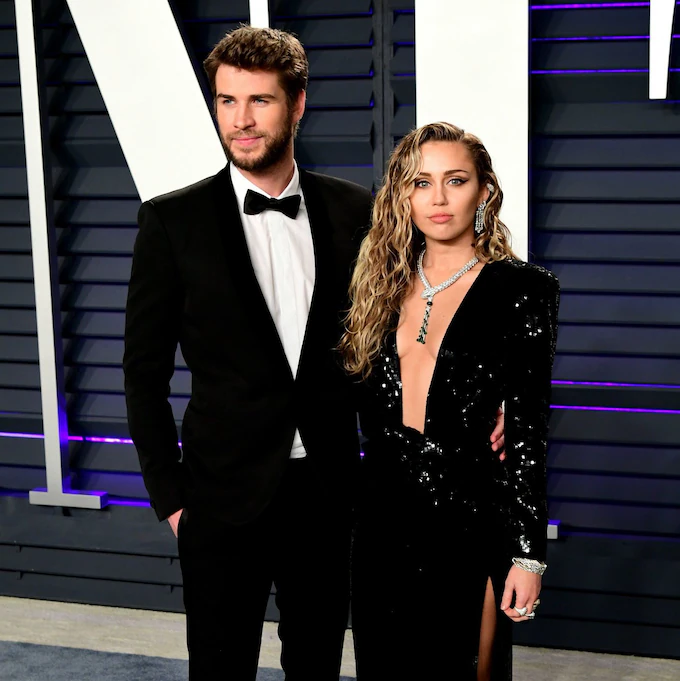-
Posts
1,323 -
Joined
-
Last visited
-
Days Won
93 -
Credits
5,426 [ Donate ]
Content Type
Profiles
Forums
Blogs
Downloads
Events
Store
Articles
Episodes
Transcripts
Gallery
Posts posted by Bob
-
-
10 hours ago, Bluedagger65 said:
I have been using Redmonds but just switched back to table salt because I thought the potassium not added to Redmond's may have contributed to my cramps.
So, I'm a bit indifferent when it comes to salt. IMO, the additives in typical table salt are trivial. But, Redmond's and Pink Himalayan salts are going to have more minerals in them because it hasn't been refined. You're actually doing the opposite of what you think you are doing. There is no potassium in table salt, but there IS potassium in Redmond's salt.
- Miranda, Geezy, Bluedagger65 and 1 other
-
 4
4
-
-
I had NY Strips last night.
The wife is starting to kick against steak and burger again, lol. I keep buying in bulk at Sam's Club, but it doesn't get eaten fast enough and ends up in the freezer. I'm going to have to stop buying fresh for a while because I have quite the collection going on, lol.
-
On 9/11/2024 at 4:46 PM, Nowler said:
Anyone got tips on reducing chances of lose skin?
They say autophagy. If you can fit in some 1-3 day fasts here and there, it's supposed to help.
10 hours ago, Nowler said:I remember when I used to find old people skin gross!
I'm getting there. When I dropped a bunch of weight last year, you could see it in my face. I was getting that turkey neck folds, lol. My new beard hides that now

-
The dangers of veganism
A vegan diet has been linked to stroke, depression and pregnancy complications. Here’s what you need to know
There are currently an estimated 2.5 million vegans in the UK Credit: Getty The vegan diet is often described in the context of its benefits for weight loss and heart health. Cult documentaries such as Netflix’s The Game Changers have helped push a narrative that going plant-based is not only best for the planet, but better for our own wellbeing.There are currently an estimated 2.5 million vegans in the UK, a figure which has nearly doubled in the past 12 months alone. This has helped to greatly enrich vegan food companies, with the UK market for meat substitutes worth more than £800 million, making it the second largest in Europe, behind Germany.Yet at the same time, accumulating studies are suggesting that the metabolic benefits of going vegan are accompanied by a plethora of health risks stemming from the diet’s inherent restrictions which involves avoiding all animal products including meat, fish, seafood, eggs, dairy, and honey. The emerging concerns range from a heightened risk of diseases relating to the skeletal and nervous systems, to conditions such as haemorrhagic stroke.“We’re basically not designed to be vegans,” says Dr Geoff Mullan, a functional medicine practitioner. “There’s some big macronutrients and micronutrients missing if you’re just eating a vegan diet. You can get plenty of proteins on a vegan diet, but there is a concern that you’re not getting enough of the right type of protein. Plant-based proteins are not the same as animal-based proteins or dairy, and our body doesn’t process them in the same way.”
Anne Hathaway recalled that after eating a piece of salmon after several years as a vegan, 'my brain felt like a computer rebooting' Credit: Vianney Le Caer/Invision/AP
Even some of the diet’s biggest celebrity advocates have ultimately returned to an omnivorous life after tiring of the restrictive nature of being vegan, combined with some worrying health concerns. Miley Cyrus told Joe Rogan’s podcast: “I was vegan for a very long time, and I’ve had to introduce fish and omegas into my life because my brain wasn’t functioning properly. Now I’m so much sharper than I was and I think that I was, at one point, pretty malnutritioned.Anne Hathaway also described that she “just didn’t feel good or healthy” while on a vegan diet and recalled that after eating a piece of salmon after several years as a vegan, “my brain felt like a computer rebooting”.So why can going vegan lead to health concerns and what do nutritional scientists think?The health risks
While dietary protein can be sourced from plants, plant proteins are not only 50-70 per cent less digestible than animal proteins, but according to the World Health Organisation, animal proteins are regarded as complete protein, meaning they have higher biological value.One recent study examined the adequacy of a vegan diet in terms of macronutrients through surveying the nutritional intake of vegans across Europe, finding that vegans consumed the least total protein.Clare Collins, a professor of nutrition and dietetics at the University of Newcastle in New South Wales, Australia, says that problems can arise when people end up starting a vegan or even a vegetarian diet as something of a fad, and thus fail to ensure that what they’re eating meets all their nutrient requirements.“I think the main danger is whether you’re truly committed to that, or whether it’s just this week I’m a vegan, I’m going to do that for a few months,” she says.
A vegan diet can lead to deficiencies in nutrients such as calcium, iron and vitamin B12 Credit: Getty
One of the most well-known risks is vitamin B12 deficiency, something which has been linked to neurological problems and blood disorders. Vitamin B12 is found in foods such as meat, poultry and eggs. Other studies have suggested that inadequate vitamin B12 consumption may even raise the risk of cancers, with some epidemiologists finding that postmenopausal female patients with low vitamin B12 levels have a heightened risk of breast cancer. Reduced vitamin B12 levels have also been linked to risk of developing cancerous growths in the cervix and gastrointestinal tract.While vitamin B12 supplementation is known as being imperative for vegans, Dr Mullan says that most of the vegans he sees in his practice tend to have lower than optimal vitamin B12 and iron levels as well as being deficient in another crucial nutrient, omega-3. Omega-3s are vital for brain health and function as they are concentrated in particularly high levels in brain cells.“We do quite a lot of blood testing and when I see a blood panel I can always tell that it’s a vegan straight away because the lipid [blood fat] profiles are normally really good, but vitamin B12 and iron levels are always in their boots,” says Dr Mullan. “And their omega-3s are always really bad.”Dr Mullan explains this is because omega-3s exist in two forms. We typically get so-called long-chain omega-3s such as EPA and DHA from eating fatty fish or omega-3 enriched eggs. However, the omega-3s found in plant-only sources such as chia and flax seeds are shorter-chain omega-3s, which we struggle to process as effectively.“At best, only somewhere between 5 and 10 per cent of short-chain omega-3s can get converted to a form we can actually use,” says Dr Mullan.It’s bad for your bones
While consuming calcium-rich vegetables such as kale and broccoli can protect bones, two of the biggest population studies that have monitored vegans over time – one which followed Seventh Day Adventists in the United States and Canada, and the EPIC-Oxford study which tracked the health of around 65,000 meat-eaters, vegetarians and vegans across the UK – have indicated that many vegans don’t actually meet their calcium requirements. As a result, the risk of hip fracture, leg fractures and general bone fractures, has been found to be higher in vegans compared with meat eaters.Much of this is thought to be because calcium is less easily absorbed from plant foods compared to dairy products, while various studies have also shown that vegans consume insufficient vitamin D which exacerbates calcium shortages.“Long-term observational studies of vegans find adverse effects on bone density that is probably caused by very low calcium and marginally adequate protein intakes,” says Thomas Sanders, an honorary professor of nutritional sciences at King’s College London. “Although vegan diets may have favourable effects on health in middle-age such as a lower risk of cardiovascular disease and Type 2 diabetes, this is not the case in older vegans who seem more likely to suffer from muscle loss, low bone density and neurological disorders which have a significant impact on the quality of life.”Greater stroke risk
One particularly alarming finding from the EPIC-Oxford study was that vegetarians and vegans had a 20 per cent greater risk of stroke compared with meat eaters.This finding has been corroborated by several studies in Japan, suggesting that individuals with a very low intake of animal products have an increased risk of stroke and that key animal-derived nutrients such as vitamin B12, essential amino acids and long chain omega-3 polyunsaturated fatty acids have a protective effect against stroke.Pregnancy complications
Earlier this year a small study conducted by researchers in Denmark suggested that vegan mothers may have a poorer prenatal nutritional status, which can lead to worse outcomes for the foetus and baby.In particular, the mothers were found to be at a greater risk of preeclampsia, a pregnancy complication that causes dangerously high blood pressure levels, while their babies had a lower birth weight compared to those of omnivores.Dr Duane Mellor, a registered dietitian, points out that while the study was small and only monitored 18 vegans, the challenges of ensuring that a vegan diet is nutritionally complete can have health consequences. “There can be risks of lower intakes of iron, iodine and vitamins B12 and D which can affect the health of both the mother, along with the development of the baby,” says Dr Mellor.Depression and mental health
A general concern with restrictive diets is that they can lead to disordered eating habits, and be reflective of a condition called orthorexia nervosa, which is defined as a fixation on health-conscious eating behaviour. This involves obsessive food decisions, self-imposed anxiety, self-punishment, and ritual activities surrounding food preparations. Research has found that both vegetarians and vegans, particularly women, are more prone to orthorexia nervosa.Some vegans who have subsequently switched back to an omnivorous diet have complained of low energy levels while following a vegan diet. Like Cyrus, her partner at the time, Liam Hemsworth described feeling “low and lethargic” while on the diet.One scientific review from researchers at King’s College London and the University of Nicosia in Cyprus found 11 studies which suggested that vegetarian or vegan diets are linked to higher rates of depression, potentially due to deficiencies in omega-3 and vitamin B12. Reduced concentrations of omega-3 fatty acids in the brain can cause significant changes in brain function, including changes in neuron size, learning and memory, while both omega-3 and vitamin B12 are involved in the transmission of key brain chemicals.
Both Miley Cyrus and Liam Hemsworth, her partner at the time, ditched their vegan lifestyles for health reasons Credit: Ian West/PA Wire
“There’s also iodine which is essential for making thyroid hormones, which are essential for energy and mental health,” says Dr Mullan. “Iodine is one of the most common deficiencies in vegans because it’s very difficult to get it from plant sources, unless you’re eating lots of seaweed.”The risks for kids
Generation Z are particularly at the forefront of the shift to a plant-based diet. Back in 2021, 8 percent of British children were identifying as vegan and 13 per cent as vegetarian, and now some surveys have suggested that more than half of Gen Zers may be choosing to follow a meat-free diet by 2025.However, there are particular concerns about the consequences of a lack of animal protein in children, such as inhibited growth, lower bone mineral content and density, and poorer developmental outcomes. A review from scientists at UCL Great Ormond Street Institute of Child Health found that nearly a third of vegetarian and vegan children do not take vitamin B12 supplements, resulting in deficiencies combined with lower iron stores, greater risk of vitamin D deficiency and inadequate iodine intake.The issues with vegan meats
Another issue with the shift towards plant-based diets is that many shop-bought plant-based meat or dairy alternatives are ultra-processed foods. Richard Hoffman, a researcher at the University of Hertfordshire, says that rather than being made with ingredients such as lentils, plant-based meats tend to be manufactured with highly refined chemicals, combined with ingredients such as emulsifiers and stabilisers.“Plant-based meats really should be called fake meats, because they’re designed to mimic meat without actually containing anything resembling meat,” he says. “All these companies are doing their best to get the product to be indistinguishable from meat, but to do that, they have to use all these highly refined ingredients.”You don’t need to go full carnivore
Ultimately, Dr Mullan says that the best approach is to combine the main benefits of a vegan diet (ie the high intake of fruits and vegetables) with a certain amount of protein through meat, fish and eggs.“I always say, the majority of your diet should be like a vegan diet with that higher vegetable intake, but adding in eggs, fish and occasionally red meat,” he says. -
On 9/9/2024 at 10:20 PM, ol_hilly said:
Wound up with more of a egg plop soup with added butter.
The chinese call it Egg Drop soup, lol.
Yesterday I feasted on .... NOTHING, lol. I had a colonoscopy this morning, so the last thing I ate was on Monday evening.
I just broke my 40 hour fast with a 4 egg omelet with sausage, pepper jack cheese, and some feta cheese.
-
I played that video thinking maybe I'd hear your voice @Meathead

-
15 hours ago, Scott F. said:
My next step is to figure out to get to only red meat, salt and water for a stretch
You really want to try Lion Diet for a while, eh?
I did that once for 30 days to get my potassium down, but outside of that, I personally love the variety. I'll still have the chicken and fish, but will have to find ways to fatten them up, lol.
-
On 9/5/2024 at 3:41 PM, Meathead said:
So labs haven't been looked at by cardiologist but my LPA was 11.
Is this good bad or am I screwed?
Any insight appreciated.
Sounds like you're just fine....
The lipoprotein (a) normal range is less than 30 milligrams per deciliter (mg/dL) of blood.
Abnormal results are:
- Borderline risk (14 to 30 mg/dL).
- High risk (greater than 31 to less than 50 mg/dL).
- Highest risk (higher than 50 mg/dL).
-
On 9/5/2024 at 2:32 PM, Scott F. said:
With that said the last two nights and in some in the days I have had cramps all over. Both my upper and lower legs. My hands and fingers. In my side.
On 9/6/2024 at 7:32 AM, Orweller said:Maybe an electrolyte drink, add it in your routine for a couple of days. Just a few days, and see what happens.
And drink it closer to bedtime. Because if you are like me, the cramps happen at night and wake me out of a dead sleep.
Just an observation: You started in May of this year. I started in May of last year. It's September and your experiencing cramps. My cramping problems didn't start until around October. I would be curious of others followed a similar timespan/pattern.
-
22 hours ago, Angela Little said:
she states that I have fluid buildup in a pocket. I had an inguinal hernia removal a few years ago and my surgeon left my abdomen deformed. I was on a journey to have it corrected, now I have to see a specialist and more X-rays and then have it drained. Has anyone ever heard of this before?
I had to look up "inguinal hernia". But, you're saying the hernia had been repaired though, and this is a post-surgery "complication", right?
-
Welcome aboard @Tdyer07
I can relate to the broken ankle. I did one of those last year.
My basic way of "changing things up" is to rotate what I eat or how I prepare them. For example, ground beef can be made loose like taco filling, or made into meatballs, meatloaf, burger patties, etc. I try not to have it the same way twice in a row, lol. I will also alternate ground beef with actual steak, chicken, fish, shrimp, etc. I like eggs and a breakfast meat. I will alternate bacon with sausage, and will also rotate between scrambled, over easy, omelet, and more.
I do include cheese though. There's a ton of carnivore tricks and recipes you can incorporate using cheese.
-
-
-
So, last night I went to a concert with the wife - an artist she really likes. I decided to have a mixer that had some bourbon (my fav) and some wild cherry stuff for the add mix. No doubt it was some flavored sugar water or corn syrup. First time I have had refined sugar since May 2023 and yes, technically breaks the vow I made with myself.
Today, I feel like sludge. I mean absolute garbage.
And that's why it has to be a vow.
-
3 hours ago, Till said:
greeting from germany
Welcome aboard @Till. I wonder why they system gave you a big "E" as a default photo when your username and name starts with a "T", lol

My first question is how long have you been doing carnivore? If this is recent, you may not be fat-adapted yet. Of course, the trick here would be to continue pushing through and boost your fat to protein intake, which should be a minimum of 1g:1g (which is about 70:30 fat calories to protein calories). You can boost fat macros with butter, lard, tallow, ghee, cheese, heavy cream, etc.
-
On 9/3/2024 at 5:57 PM, Angela Little said:
My question is what the difference between Magnesium glycinate and malate, and what should the mg be?
Not much....
https://nutritionaholic.com/magnesium-malate-vs-glycinate/
LMNT used Magnesium Malate. SALTT used Magnesium Chloride. I personally take a magnesium complex supplement that is 4-n-1....
I believe for women you could take UP TO 320mg a day as a supplement, if you even need that much.
-
On 9/3/2024 at 8:59 AM, Scott F. said:
My weight will swing up and down into what seems like a 'moving stall'. When I happen to eat lighter for a day or so I drop weight fast, five to six pounds in a three- or four-day span. Then the moving stall happens again.
I've got this video where I share my Carb Manager weight loss graph. It goes up and down, then up and down, etc. Weight loss certainly isn't linear...
https://youtu.be/DzEsQOVUx0k?si=k8bu4kksV0pgEYq5
-
On 9/3/2024 at 3:28 AM, michael1222 said:
I plan to take Vitamin D (from lichen) + k2 (from natto), magnesium, and zinc.
All that should be fine, provided there's nothing in the lichen or natto that you would be sensitive to. I imagine it would be a rather clean extract (vitamin D collected, rest of the algae discarded) so it should be toxin free. I've never heard of it till now. I couldn't find much about it outside of natural health and vegan based websites, but that's okay. This doesn't mean it's bad. It just means they are particularly excited about it.
If you get plenty of sun, you might want to get your Vitamin D levels checked. And then if the dose is large, check it regularly. Vitamin D toxicity can be a thing.
QuoteKindly advise where I can get potassium from animal sources. Thank you.
There is potassium in all meat, with Pork reigning supreme and Chicken coming in at a close second. I have stage 4 CKD, and sometimes I get hyperkalemic (high potassium) and have to back off the bacon for 30 days or so to get it back down.
If you don't have a huge appetite, you might want to drink an electrolyte supplement like LMNT or SALTT to make up the difference. In the past, all these minerals used to be in our water. But today that's not the case.
-
On 8/29/2024 at 8:54 PM, michael1222 said:
Hi, I am new to the Carnivore diet. Can any experts please advise if I can take plant-based supplements? Thanks.
You will more than likely be just fine.
Remember that you get most, if not all, of what you need from meat alone - particularly beef and eggs, and bonus points if you can do organ meats, as they are like multivitamins in and of themselves, being very bioavailable for humans.
Certain plant based supplements might only yield a small benefit, because the plant form is not a form humans can use, so the human body has to convert it to a useable form, and it's not very efficient at that, so a lot goes to waste.
Is there particular supplements you had in mind?
- Angela Little and Geezy
-
 2
2
-
The human body can catch on to what were doing. Your metabolism was "trained" to be burning at a particular rate. Then you cut out a meal. This did two things. 1) It lowered the amount of fuel your taking in, and 2) it gave your body time to use up what you ate and tap into those reserves, and thus lose weight. But then it caught on, and slowed your metabolic rate to adapt to your new level of food intake. It's a survival mechanism. It think's there is less food (i.e. famine) and so it's conserving resources.
You could try adding back in that 3rd meal for a few days or a week. Then your body is like "okay, the hard times are passed" and it can comfortable rase your metabolic rate. Then you can cut that meal and go back to intermittent fasting.
Some people do this gradually. They used to eat 2000 calories a day, then cut it to 1500. They lose some wieght and then plateau. So after plateauing for a while (say, 30 days with no movement on the scale), they start adding calories, about 50 per day. 1550, 1600, 1650, 1700, 1750, etc etc... 2000. And then drop it to 1500 again and then the weight loss continues.
Other people try tricking their body by suddenly switching fuels (carb cycling). One day for lunch, eat some fruit. The body is like OH, we have glucose to burn. But then go right back to strict carnivore and don't do it again for a week or two.
Different "tricks of the trade" work for various individuals.
But maybe the best advice is what Dr. Berry says, in that you need some "Vitamin P" - that is - patience. Wait it out, and it will start coming off again. Just let eating right and being healthy be your main goal, and the weight loss will do it's thing in it's own time.
- Orweller, XaqNautilus, Geezy and 2 others
-
 5
5
-
On 8/31/2024 at 6:41 AM, Cory said:
Im already a hard gainer with a maintenance of around 3200-3400... the decrease in calories will be quite large. Im being offput by the idea of seeing my size drop so much, and as I am already a very lean individual
The calories don't necessarily have to decrease. If I recall, people like Shawn Baker and Anthony Chaffee, who are cut and work out, both eat about 3 pounds of meat each day. Those of us who are trying to lose weight usually add in intermittent fasting, and only eat 1-2 pounds a day, and might average half those calories or slightly more.
-
1 minute ago, Bob said:
A healthy diet is varied, with as many colorful fruits and vegetables
and whole grainsas possible, Wilde said.Fixed, lol. What are we? Cows? lol.
2 minutes ago, Bob said:“Just be mindful of the nutritional content of (the ultraprocessed foods) that you do choose to consume.”
The irony is, that even the processed meat products are waaaay more rich in nutrients than the ultraprocessed grain products.
I think when they refer to ultra-processed meat, they're having in mind Slim-Jim's, salami, and maybe certain sausages, which to their credit, is often not full of clean ingredients anyway.
4 minutes ago, Bob said:Every four years, they completed a detailed food questionnaire.
Because that's 100% reliable, lol.
Please reply in detail what you ate over the last 4 years below

- Meathead, Miranda and XaqNautilus
-
 1
1
-
 2
2
-
For the sake of preserving the article, should it disappear....
QuoteHere are the ultraprocessed foods you most need to avoid, according to a 30-year study
By Madeline Holcombe, CNN
4 minute read
Updated 9:29 AM EDT, Thu May 9, 2024
CNN —
Eating ultraprocessed foods is associated with an early risk of death, according to a 30-year study — but different foods have different impacts.
Ultraprocessed foods are those that contain ingredients “never or rarely used in kitchens, or classes of additives whose function is to make the final product palatable or more appealing,” according to the Food and Agriculture Organization of the United Nations.
Those ingredients — found in things such as sodas, chips, packaged soups, nuggets and ice cream — can include preservatives against mold or bacteria, artificial coloring, emulsifiers to stop separation, and added or altered sugar, salt and fats to make food more appealing.
Processed meats and sugary foods and drinks aren’t correlated with the same risks as ultraprocessed whole grains, for example, said lead study author Dr. Mingyang Song, associate professor of clinical epidemiology and nutrition at Harvard’s TH Chan School of Public Health.
The study analyzed data from more than 100,000 health professionals in the United States with no history of cancer, cardiovascular disease or diabetes. From 1986 to 2018, the participants provided information on their health and lifestyle habits every two years.
Every four years, they completed a detailed food questionnaire.
The group eating the least ultraprocessed food ate about three servings a day on average, while the highest averaged seven servings a day, according to the study published Wednesday in The BMJ journal.
Those who ate the most had a 4% higher risk of deaths by any cause, including a 9% increased risk of neurodegenerative deaths, the data showed.
Song described the correlation as “moderate,” noting that the connection was not equally strong among all kinds of ultraprocessed foods.
“The positive association is mainly driven by a few subgroups including processed meat and sugar sweetened or artificially sweetened beverages,” he said.
Findings in this study were consistent with hundreds of others in the field, but what makes this one unique is its parsing out of different subgroups within the ultraprocessed food category, said Dr. Marion Nestle, the Paulette Goddard professor emerita of nutrition, food studies and public health at New York University.
Do we need to get rid of all ultraprocessed foods?
Song wouldn’t necessarily advise a complete rejection of all ultraprocessed foods because it is a diverse category, he said.
“Cereals, whole grain breads, for example, they are also considered ultraprocessed food, but they contain various beneficial nutrients like fiber, vitamins and minerals,” he said. “On the other hand, I do think people should try to avoid or limit the consumption of certain ultraprocessed foods, such as processed meat, sugar-sweetened beverages and also potentially artificially sweetened beverages.”
There are also more questions that need to be answered when it comes to ultraprocessed foods.
First, the recent study is strong because of the length of time covered, but it is an observational study. That means that while researchers can observe a correlation, they can’t say that the foods were the cause of the deaths, said Dr. Peter Wilde, emeritus fellow at Quadram Institute Bioscience in the United Kingdom.
Researchers also need to look more at the components of ultraprocessed foods that might be affecting health — whether they be food additives, emulsifiers or flavors — to advise governments and institutions on how to regulate foods, Song said.
Overall diet matters most
Researchers also found that the most important factor to reducing risk of death is the quality of a person’s overall diet, Song said.
“If people maintain a generally healthy diet, I don’t think they need to be like scared or be freaked out,” he said. “The overall dietary pattern is still the predominant factor determining the health outcomes.”
A healthy diet is varied, with as many colorful fruits and vegetables and whole grains as possible, Wilde said.
“If you are worried about food additives, then choose foods that have low levels of additives,” he said in an email. “Just be mindful of the nutritional content of (the ultraprocessed foods) that you do choose to consume.”
It is also important to recognize that foods need to be eaten in balance. Fruit juice contains beneficial vitamins, minerals and antioxidants when consumed in moderation, but too much will have high levels of sugar that may override their benefits, Wilde said.
“This is not black and white,” he said. “A particular food is not either good or bad, it will contain elements of both, and the balance between the two may depend on how much you eat.”









Help Regarding My Blood Sugars
in Carnivore, Meat-based Keto, & Ketovore Support
Posted
So you are experiencing the "dawn phenomenon" as mentioned above. And the reason it takes so long to come down is because you are still diabetic and not taking insulin anymore. As a Type II Diabetic, you have one or both of these issues going on: 1) Your cells are insulin resistant, and 2) Your pancreas produces insufficient amounts of insulin.
A normal healthy person would see that morning blood sugar spike come down fairly fast, but for you it takes until the evening. You can either choose not to worry about it or resume some insulin, to which you will not need nearly as much as you were taking before.